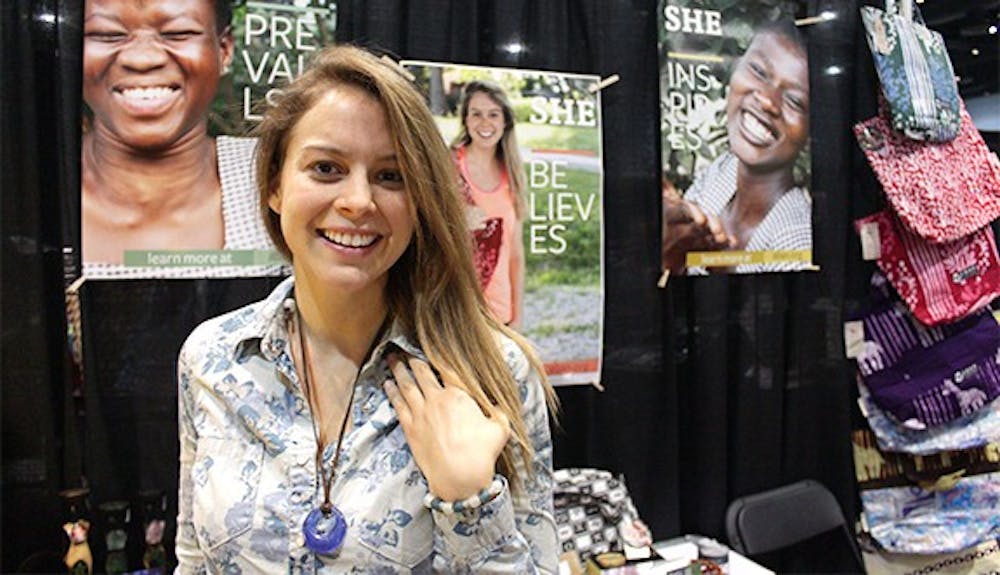Fashion often aids transformation — in Ghana, it is transforming women’s entire lives.
ABAN, or A Ban Against Neglect, is a nonprofit organization that educates, empowers and employs impoverished women — including many mothers — in Accra, Ghana, through a two-year educational program that results in job placement upon graduation.
Program funding comes from the sale of accessories made by Ghanian women out of recycled plastic and the nation’s traditional fabric. The organization recently released Ahemaa: a new, more modern line of Ghanian printed fabric.
“We wanted to use fabric from a Ghanian company, produced in Ghana,” said Mary Kathryne Hutton, ABAN’s operations manager. “It’s about exploring different looks for our products — (Ahemaa) is a lot more modern because we think we can provide a product that’s still supporting our program but can have the aesthetic for multiple consumers.”
Hutton said that Batik, ABAN’s earlier line, is a much more traditional, specific aesthetic. Batik products are made with a combination of recycled plastic bags — found on Accra’s streets — and white cloth stamped with wax and dyed different colors. She said that while Ahemaa is more modern, it stays within ABAN’s West African style.
Lindsay Sebastian, ABAN’s communications manager, said despite the addition of printed fabric to its collection, ABAN remains steadfast on using Ghanian products in order to continue to break the nation’s cycle of poverty.
“We want to ensure that we continue to utilize and empower Ghanian businesses,” she said.
Sebastian said sales of the Ahemaa line have been great thus far. ABAN co-founder and 2009 UNC graduate Callie Brauel said she credits this success to a collaboration between U.S. and Ghanian design.
“Our overall aim is to incorporate patterns that are strong, bold and feminine,” Brauel said.



